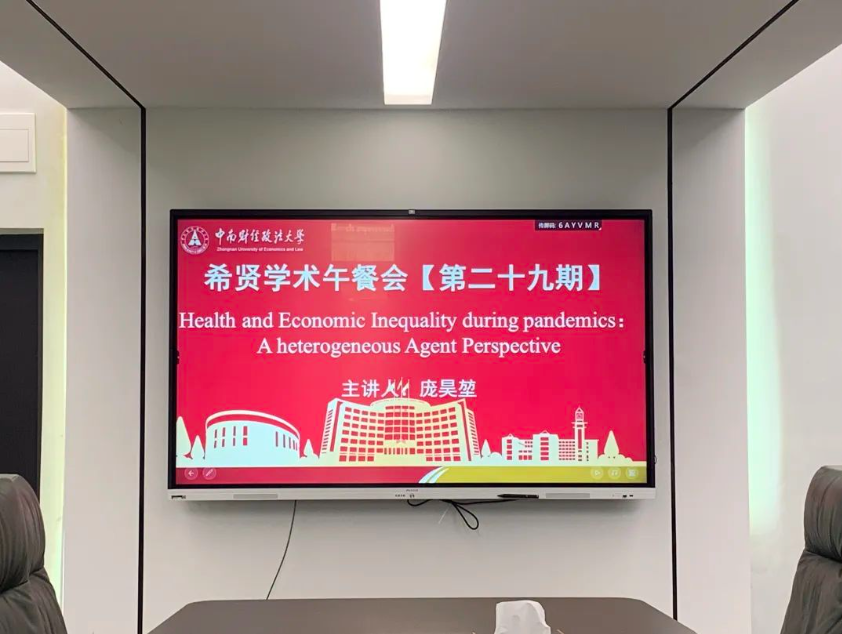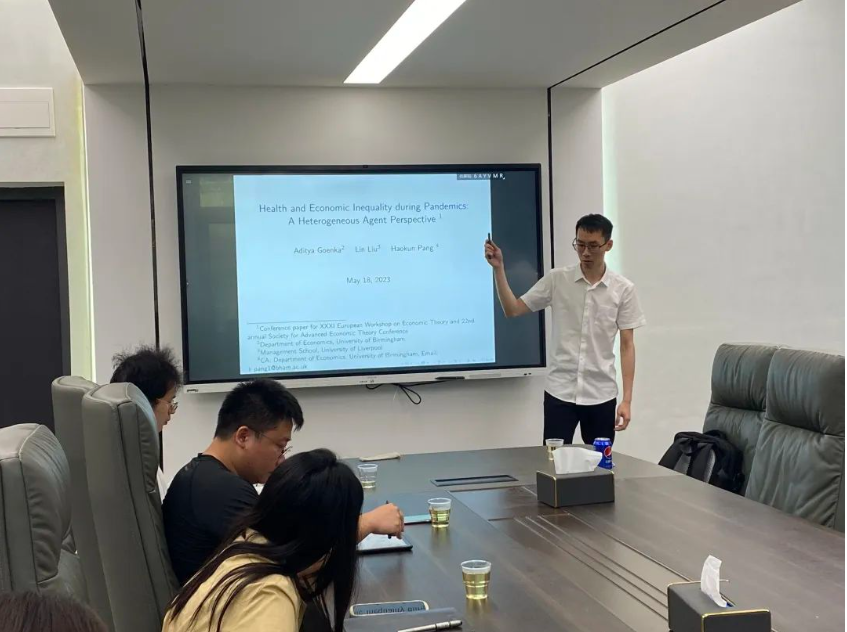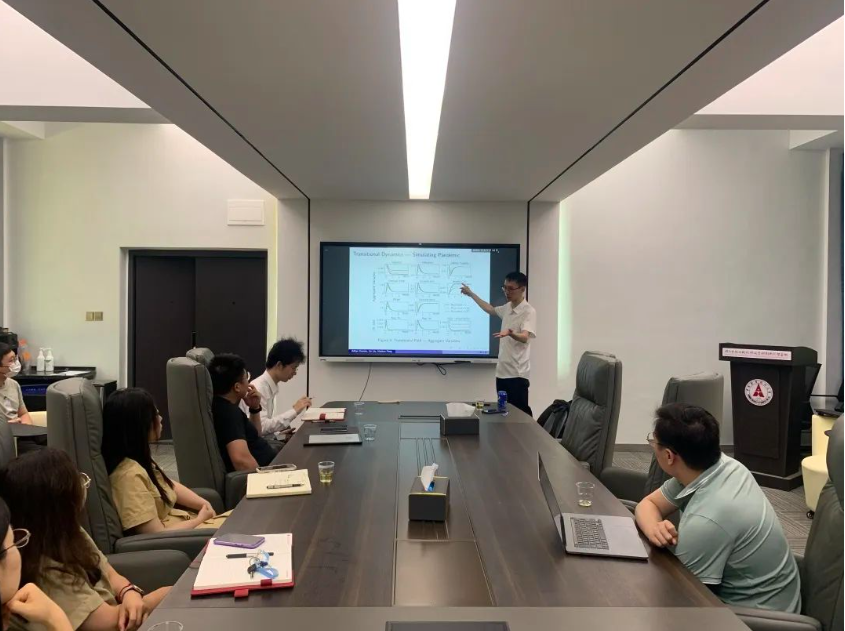
On 19 May 2023, the 29th Xi Xian Academic Luncheon, co-organised by IIDPF and the School of Public Finance and Taxation, was successfully held in Conference Room 119, Wenqin Building. Pang Haokun, a PhD student at the University of Birmingham, was the guest speaker for this academic luncheon and gave a keynote speech entitled Health and Economic Inequality during Pandemics: A Heterogeneous Agent Perspective. The academic luncheon was hosted by Professor Lu Yuanping, Executive Director of IIDPF, and attended by more than twenty faculty members and students, including Professor Xu Juan and researchers Dr Wan Qian, Dr Zou Wei, Dr Wan Xin and Dr Zou Jianwen from the School of Statistics and Mathematics.

Do pandemics exacerbate health and economic inequalities? In response to this question, Dr Pang Haokun examines the heterogeneous health and economic impacts of pandemics in a continuous time heterogeneity framework (HACT). The article develops a continuous time heterogeneity model to characterise the health and economic impacts of a pandemic, in which wealth and health status are state variables, where the population can be divided into three categories based on health status: susceptible (S), infected (I), and recovered (R), with infectious diseases (e.g. Covid-19) following SIRS dynamics, i.e. recovered populations are likely to be re-infected. Health status affects the income of the population, and the income of the infected population is reduced relative to that of the susceptible and recovered populations, which can be influenced by the two types of health expenditure: the cost of prevention and the cost of treatment. In addition, infection not only reduces income, but also has physiological effects that directly reduce individual effectiveness. Dr Pang uses the HACT framework, which has been proposed in recent years, to solve the above model. By establishing the Hamilton-Jacobi-Bellman equation (HJB equation), the Kolmogorov Forward equation (KF equation) and the market clearing condition, the model can be solved numerically.
After calibrating the model parameters, Dr Pang conducted a series of simulations. The simulations showed that in equilibrium wealthier people spend more on health, are in better health and thus have higher incomes, as their labour income is less affected by the pandemic; in a pandemic, people spend more on infection prevention with higher elasticity, leading to increased income and health inequalities, which is consistent with empirical evidence; in addition, wealth inequalities, while also increasing The response was more delayed. Dr Pang also conducted simulations of transfer dynamics and found that the lower the initial recovery population, the higher the number of infected people, with a peak of about 50% at an initial recovery population of 0.

Dr. Pang Haokun brought a spectacular lecture to the audience and also triggered in-depth thinking on health and economic inequality. In the discussion session, the participating faculty members exchanged and discussed relevant issues, and the students also spoke enthusiastically and had positive interaction around the research background and model construction. The academic salon was successfully concluded. Dr Pang's sharing promoted the communication and interaction of academic views between teachers and students, broadened students' horizons and created a strong atmosphere for academic research.
